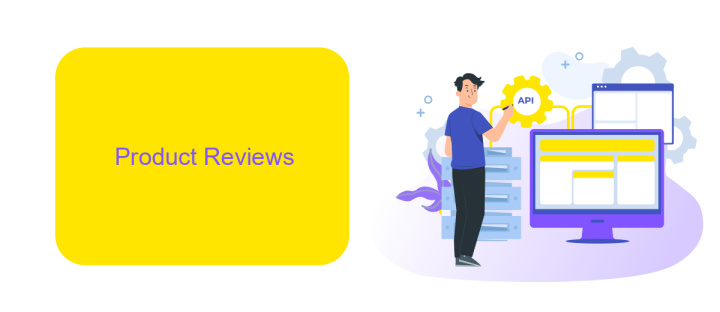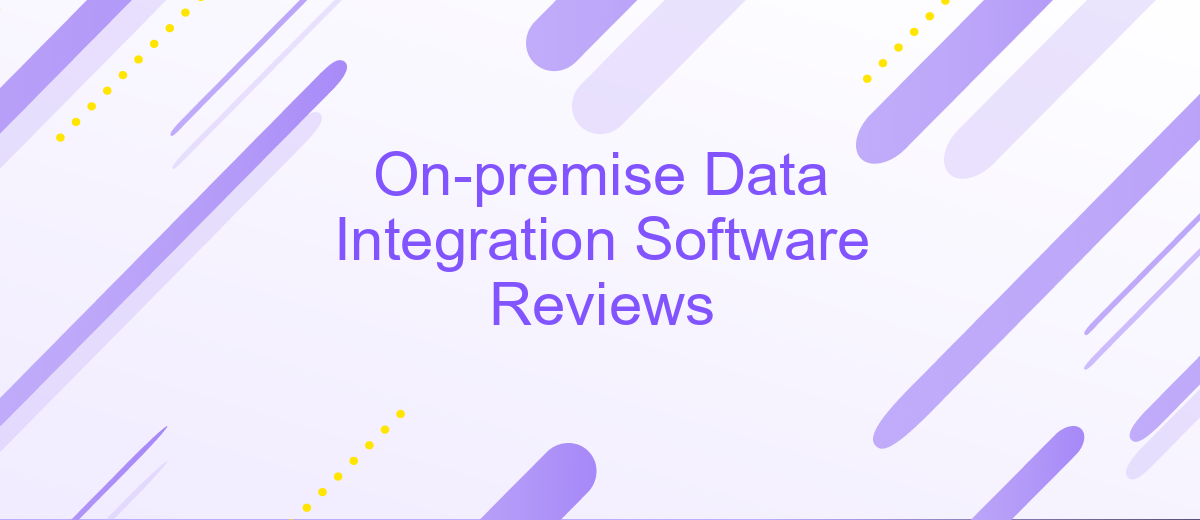On-premise Data Integration Software Reviews
In today's data-driven world, effective data integration is crucial for businesses seeking to harness the full potential of their information. On-premise data integration software offers robust solutions for managing and consolidating data within a company's own infrastructure. This article reviews some of the leading on-premise data integration tools, evaluating their features, performance, and suitability for various organizational needs.
Introduction
On-premise data integration software plays a crucial role in modern business environments, providing organizations with the ability to seamlessly connect various data sources within their own infrastructure. This approach ensures data security, compliance, and control, which are often critical requirements for many companies.
- Enhanced data security and privacy
- Compliance with regulatory requirements
- Greater control over data management processes
- Customization to meet specific business needs
One of the notable solutions in this space is ApiX-Drive, a service that facilitates the integration of various applications and data sources. With ApiX-Drive, businesses can automate data workflows, ensuring timely and accurate data transfers between systems. This not only streamlines operations but also reduces the risk of human error, making it a valuable tool for any organization looking to enhance their on-premise data integration capabilities.
Product Reviews

On-premise data integration software offers businesses the flexibility and control needed to manage their data securely within their own infrastructure. One of the standout products in this category is ApiX-Drive, which provides a robust solution for integrating various data sources seamlessly. Users appreciate its user-friendly interface and the ability to set up integrations without needing extensive technical knowledge. The platform supports a wide range of applications and services, making it a versatile choice for businesses looking to streamline their data workflows.
Another notable feature of ApiX-Drive is its real-time data synchronization capabilities. This ensures that data across different systems is always up-to-date, which is crucial for decision-making and operational efficiency. Additionally, the software provides comprehensive monitoring and logging tools, allowing businesses to track data integration processes and quickly identify any issues. Overall, ApiX-Drive is highly recommended for organizations seeking a reliable and efficient on-premise data integration solution.
Comparison Table

When selecting on-premise data integration software, it's crucial to compare different options based on various criteria to find the best fit for your organization. Below is a comparison table that highlights some key features and capabilities of popular data integration tools.
- Tool Name: ApiX-Drive
- Integration Capabilities: Supports a wide range of applications and services
- User Interface: Intuitive and user-friendly
- Cost: Affordable pricing plans
- Support: Excellent customer support
- Tool Name: Software B
- Integration Capabilities: Limited to specific applications
- User Interface: Complex and requires training
- Cost: Moderate pricing
- Support: Good customer support
- Tool Name: Software C
- Integration Capabilities: Extensive but complex
- User Interface: Professional but difficult to navigate
- Cost: High pricing plans
- Support: Adequate customer support
By comparing these tools based on integration capabilities, user interface, cost, and support, you can make a more informed decision. ApiX-Drive stands out for its wide range of supported applications, user-friendly interface, and excellent customer support, making it a strong contender for businesses of all sizes.
Buyer's Guide

Choosing the right on-premise data integration software can be a daunting task, given the myriad of options available in the market. It's crucial to identify your organization's specific needs and assess how well each solution aligns with those requirements.
Start by evaluating the software's compatibility with your existing systems and its ability to handle the volume and complexity of your data. Consider the ease of use and the level of technical expertise required to implement and maintain the solution.
- Compatibility with existing systems
- Scalability and performance
- Ease of use and user interface
- Support and documentation
- Cost and licensing options
For organizations looking to simplify the integration process, services like ApiX-Drive can be invaluable. ApiX-Drive offers a user-friendly platform that allows you to set up integrations quickly without extensive coding knowledge. This can significantly reduce the time and effort required to get your data integration up and running.
- Automate the work of an online store or landing
- Empower through integration
- Don't spend money on programmers and integrators
- Save time by automating routine tasks
Conclusion
In summary, on-premise data integration software offers robust solutions for businesses seeking to manage their data within their own infrastructure. These tools provide enhanced control, security, and customization options, making them ideal for organizations with specific compliance requirements or those handling sensitive information. Despite the initial setup and maintenance costs, the long-term benefits often outweigh these challenges, especially for large enterprises.
Moreover, integrating various data sources and applications can be streamlined with services like ApiX-Drive. This platform simplifies the process, enabling seamless data flow between different systems without extensive coding knowledge. By leveraging such tools, businesses can enhance their operational efficiency and ensure that their data integration processes are both effective and scalable. Ultimately, choosing the right on-premise data integration software requires careful consideration of an organization's unique needs and resources.
FAQ
What is on-premise data integration software?
What are the main benefits of using on-premise data integration software?
How does on-premise data integration software differ from cloud-based solutions?
What challenges can be expected when implementing on-premise data integration software?
Is there a way to simplify the integration process for companies without extensive IT resources?
Apix-Drive will help optimize business processes, save you from a lot of routine tasks and unnecessary costs for automation, attracting additional specialists. Try setting up a free test connection with ApiX-Drive and see for yourself. Now you have to think about where to invest the freed time and money!


